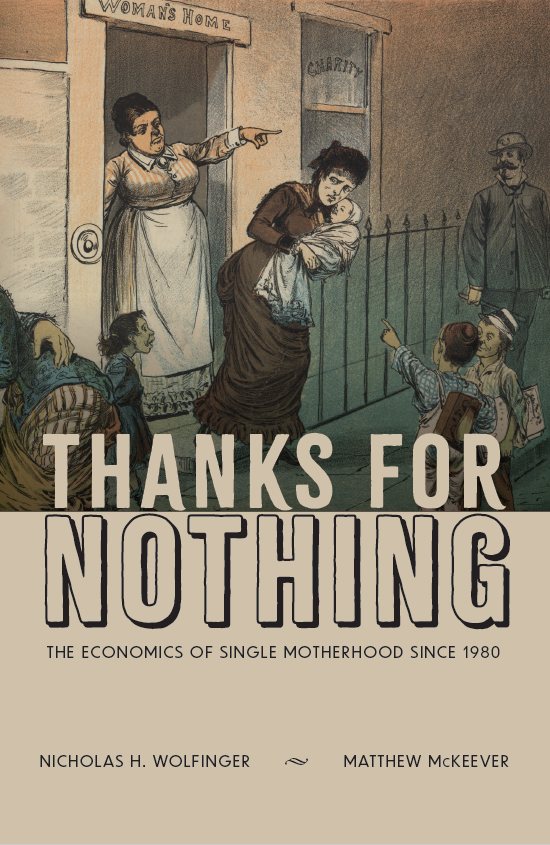Thanks For Nothing
The Economics of Single Motherhood Since 1980
Salt Lake City, UT — In their new book, Thanks for Nothing: The Economics of Single Motherhood Since 1980, Dr. Nicholas H. Wolfinger, Professor of Family and Consumer Studies and Adjunct Professor of Sociology at the University of Utah, and Matthew McKeever, Professor of Sociology and department chair at Haverford College, provide an in-depth exploration of the persistent economic challenges faced by single mothers in the United States over the past four decades. The book, drawing on nearly 40 years of data, offers the most comprehensive statistical portrait of single motherhood to date and explores why, despite significant gains in education and employment for American women, single mothers continue to experience disproportionately high rates of poverty.
In 1980, single mother families were five times more likely to live in poverty than two-parent families. Forty years later, this ratio remains unchanged. The book seeks to unravel the paradox of why single mothers’ economic situations have remained stagnant, even as women’s participation in the workforce and educational attainment have dramatically increased.
“This book carefully tracks the economic realities of single motherhood across multiple generations, revealing the structural and historical forces that have led to persistent inequality,” said Dr. Wolfinger. “We found that the key factor driving this stagnation is the shift in the demographic makeup of single mothers. Forty years ago, most single mothers were divorced women, who on paper, resemble their married counterparts but with only one income. Today, the majority of single mothers are never-married, and they face very different economic challenges.”
Thanks for Nothing offers new insights into the intersection of family structure and economic disadvantage, highlighting the disparities between divorced mothers and never-married mothers. The book draws on data from two large national surveys—the U.S. Census Bureau’s Current Population Survey and the National Longitudinal Survey of Youth—and examines factors like education, employment, and family background that influence economic outcomes for single mothers.
Despite significant policy efforts over the past few decades, including the landmark 1996 federal welfare reform that aimed to move single mothers from welfare to work, many single mothers remain economically disadvantaged. Dr. Wolfinger and McKeever argue that without targeted changes in U.S. social and economic policy, this state of affairs is likely to persist, with millions of children trapped in poverty.
The authors also highlight key recommendations for policymakers on both sides of the political spectrum, making a bipartisan case for how to better support single mothers in order to reduce economic inequality and improve outcomes for children. The book is a crucial resource for academics, policymakers, and anyone concerned about the economic future of single-parent families.
click here to purchase Thanks for Nothing
About the Blog
Discussion channel for insightful chat about our events, news, and activities.

